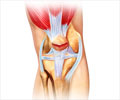Parecoxib Medication Information
Learn everything you need to know about Parecoxib-pronunciation, uses, dosage guidelines, indications, and when to take or avoid it.
Get up-to-date information on side effects, precautions, warnings, and proper storage to ensure safe usage.
Explore Parecoxib brand names commonly used in India and internationally, along with detailed pricing information. Consult your healthcare provider for tailored medical advice.
Generic Name : Parecoxib Pronunciation : par-i-coks-ib ICD Code : Y45.8 Therapeutic Classification : AnalgesicsBrand Names or Trade Names of Parecoxib
India :
International :
Dynastat
Why is Parecoxib Prescribed? (Indications)
This medication is a nonsteroidal anti-inflammatory drug (NSAID), prescribed for postoperative pain in adults.When should Parecoxib not be taken? (Contraindications)
Contraindicated in patients with inflammatory bowel disease, heart failure, peptic ulcer, severe liver impairment, and hypersensitivity.What is the dosage of Parecoxib?
Adult- IV/IM- The recommended dose is 40 mg, followed by 20-40 mg every 6-12 hours.How should Parecoxib be taken?
It comes as a solution for injection to be administered by a healthcare provider into the vein or the large muscle.What are the warnings and precautions for Parecoxib?
• Caution should be exercised in patients with history of dehydration, high blood pressure, liver or kidney disease, gastrointestinal bleeding, ulcer, sugar, any infection, elderly, during pregnancy and breastfeeding.• It may cause dizziness or drowsiness, do not drive a car or operate machinery while taking this medication.
• It should not be used in children.
What are the side effects of Parecoxib?
Gastrointestinal - Ulcer and gastrointestinal bleeding.Liver - Jaundice and abnormal liver function.
Heart - Heart failure, heart attack, slow heart rate, high/low blood pressure and abnormal heart rhythm.
Hypersensitivity - Swelling, rash, itching and difficulty in breathing.
Miscellaneous - Back pain, low platelet counts, agitation, disturbed sleeping and decreased urination.





